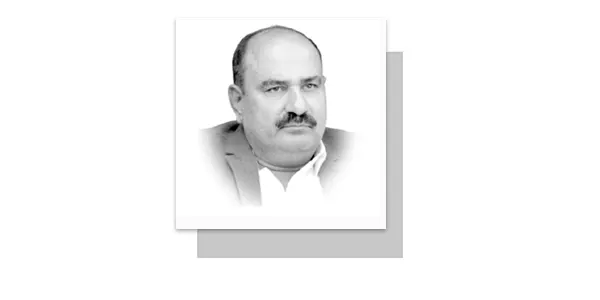IN Pakistan’s evolving media landscape, the surge in journalists with diverse affiliations has blurred the lines between authentic reporting and agenda-driven narratives. This exploration delves into the complex motivations driving journalists to align with political factions, chase ratings, pursue personal gains, or seek publicity. Despite these challenges, the foundational duty of journalism—to inform, educate and hold power accountable—remains crucial. A concerning trend is the alignment of journalists with political parties, posing a risk to objectivity and impartiality, core tenets of responsible journalism. The competitive media industry intensifies this challenge, with ratings becoming a primary goal for news outlets. The pursuit of sensationalism for audience capture sometimes sacrifices accuracy and depth, distorting public discourse.
Furthermore, some journalists are motivated by personal gains, be it financial or career-oriented, potentially compromising ethical standards. This intricate landscape underscores the need for a delicate balance, where journalists uphold the essence of their profession while navigating the pressures of politics, ratings and personal ambitions. Transparency in media ownership and financial dealings is crucial to maintaining the integrity of journalism and ensuring that reporters are not swayed by ulterior motives that may compromise the quality and authenticity of their work. In the age of social media, journalists are not only confined to traditional platforms but are also engaged with the public directly through various online channels. While this direct interaction can enhance transparency, it also opens the door to the pursuit of personal publicity.
Some journalists prioritize gaining followers, likes and shares over the substance of their reporting, potentially sacrificing the depth and accuracy of their work for virility. Amidst this complex landscape, discerning authentic journalism becomes a daunting task for the audience. It requires a critical evaluation of sources, cross-referencing information and staying vigilant against potential biases. Media literacy plays a pivotal role in empowering the public to distinguish between credible reporting and sensationalism.
Additionally, media organizations must uphold ethical standards, ensuring that their journalists adhere to principles of fairness, accuracy and accountability. Beyond the challenges and diversions, journalism is fundamentally a duty – a responsibility to society. Journalists are entrusted with the task of being the Fourth Estate, holding those in power accountable and providing citizens with accurate and unbiased information. This duty necessitates a commitment to truth, regardless of political affiliations or commercial pressures. As custodians of public trust, journalists play a crucial role in shaping public opinion and influencing the trajectory of the nation. In the contemporary media landscape of Pakistan, the pursuit of financial gain has extended beyond traditional journalism outlets to social media platforms like YouTube, TikTok and Instagram.
A growing number of journalists are turning to these channels as avenues for personal branding and, subsequently, financial gain. Unfortunately, this shift has given rise to a concerning trend – the prioritization of earning through attention-grabbing content often facilitated by the use of misleading captions and sensationalism. As journalists embrace the digital age, the distinction between traditional reporting and social media influence becomes blurred. Platforms like YouTube, TikTok, Instagram, etc., offer a lucrative space for content creators, including journalists, to reach out to a wider audience and potentially monetize their content. This shift, however, has led some to prioritize attracting viewers through sensationalism rather than adhering to the principles of responsible journalism.
One disturbing manifestation of this trend is the use of fake captions to lure viewers. Journalists seeking to increase their social media following and engagement may resort to hyperbole, clickbait or misleading captions to attract attention. The race for likes and shares becomes paramount, often overshadowing the commitment to factual reporting. This not only erodes the credibility of individual journalists but also contributes to the broader challenge of disinformation and misinformation.
The convergence of journalism with social media influence raises ethical questions about the responsibility of journalists in the digital age. While leveraging social media platforms for outreach is a legitimate strategy, the use of fake captions and sensationalism undermines the very foundations of journalism. The public’s trust is at stake when journalists prioritize financial gains over accuracy, and the ethical standards expected from the profession may be compromised in the pursuit of online popularity. As the lines between traditional journalism and social media influence blur, media literacy becomes an essential tool for the audience. The public must be equipped to discern between authentic reporting and content driven by the pursuit of online engagement and financial gains.
Media literacy initiatives empower individuals to critically evaluate content, distinguishing between credible journalism and sensationalized narratives driven by monetary incentives. Journalists navigating the digital landscape face the delicate task of balancing financial sustainability and ethical journalism. While social media platforms offer monetization opportunities, it’s imperative that journalists uphold principles of truth, accuracy, and accountability, ensuring responsible reporting prevails over online popularity. The prioritization of earning through social media has introduced new challenges, including ethical concerns like fake captions and sensationalism. As the media landscape evolves, maintaining a balance between financial sustainability and ethical reporting is essential to preserve the integrity of journalism and uphold public trust in the Fourth Estate.
—The writer is former Regional Executive Inclusive Development at NBP, Mirpur AK.
Email: aahmadofpaswal@yahoo.com
views expressed are writer’s own.
views expressed are writer’s own.










